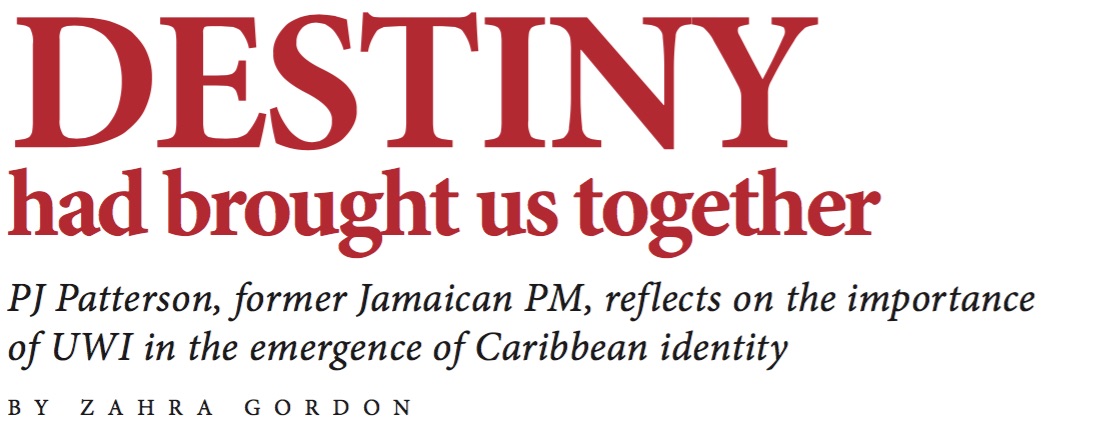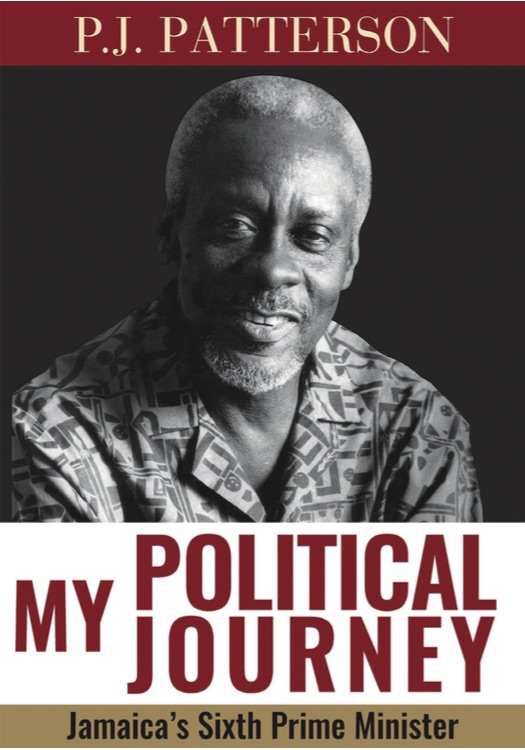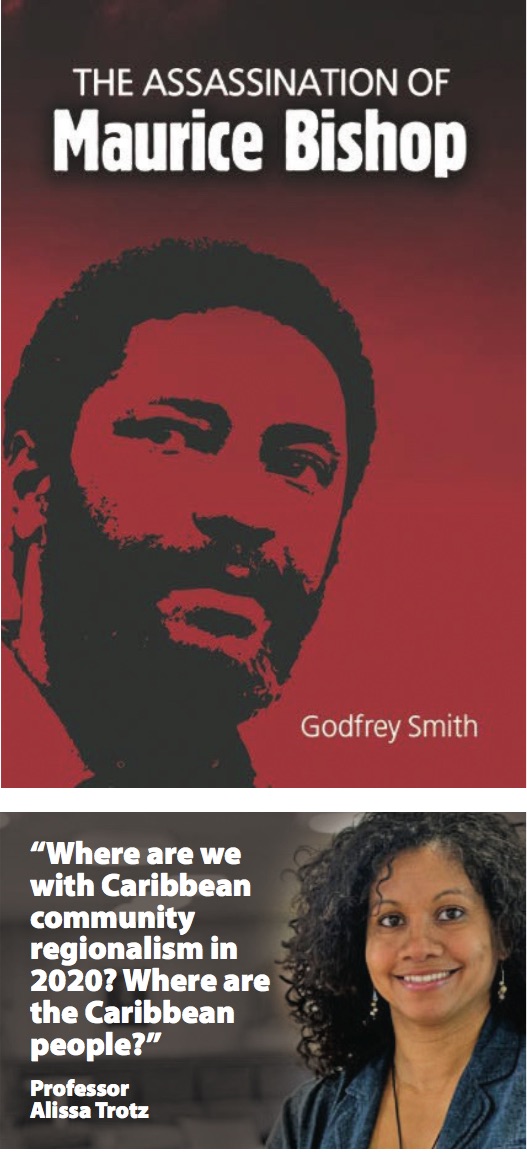

According to former Jamaican Prime Minister PJ Patterson, attending The University of the West Indies played a key role in the development of his Caribbean identity. During the virtual 2020 NGC Bocas Lit Fest held from September 18-20, Patterson was one of four panellists in the discussion, “A Question of Leadership: What have present leaders learnt from the past to take us forward?” Patterson credited some of his political successes to the friendships he developed as a student.
Reading an excerpt from his autobiography, My Political Journey, Patterson said he could travel to any part of the Caribbean and meet peers and colleagues from The UWI. “In 1954, no matter the country of origin or the faculty to which we belonged, we were all one big family on the Mona campus. Professors, lecturers, and hospital staff, shared with their children on the campus and the entire student body, one commonplace and fellowship. Within a short time, most of us would become devout regionalists not by any process of indoctrination, but by intuitive acceptance that destiny had brought us together to fashion a dynamic, vibrant Caribbean identity,” read Patterson.
He added that students were groomed to be leaders in all fields. “It was my view that we were being prepared for leadership and leadership was not confined to running for political office. It would include the judiciary, the church, and it would include public servants.”
As a UWI student, Patterson was part of a committee that drafted a model constitution for the defunct West Indies Federation. “One of the things in which we were engaged was in the federal experiment and we had the audacity as students to draft what we regarded as the model constitution for the Federation and it is our considered view that the Federation collapsed because they did not follow our sage advice,” reminisced Patterson.
The break down in personal relationships was also a cause of the Federation’s decay, he said. “Indeed one of the reasons for the collapse of the federal experiment was that Norman Manley (former Jamaican PM), Grantley Adams (first Premier of Barbados and PM of the West Indies Federation) and Eric Williams (former PM of Trinidad and Tobago) – all of whom had been educated in their time in the United Kingdom – started off with a respect and a friendship that deteriorated throughout the years. They were hardly in communication with each other and I learnt from that the imperative of developing relationships with my colleagues as politicians whether we share the same ideological outlook or not. And I was able to rely on some friendships and associations which I had developed in those earlier times.”
Panellist Professor Alissa Trotz, Professor of Caribbean Studies at New College, and Director of Women and Gender Studies at the University of Toronto, agreed that many Caribbean scholars, such as the late Professor Emeritus Norman Girvan (former Secretary General of the Association of Caribbean States and prominent regionalist), attribute their sense of Caribbean identity to attending The UWI, but questioned the materiality of this identity in the 21st century.
“Where are we with Caribbean community regionalism in 2020? Where are the Caribbean people? What happened to the assembly of Caribbean parliamentarians, which in and of itself was limited because it was only about parliamentarians?” asked Trotz, who is associate faculty at the Dame Nita Barrow Institute for Gender and Development Studies at The UWI, Cave Hill. She identified numerous Caribbean Community (CARICOM) meetings and declarations about regional integration that have yet to be implemented.

Trotz also chided Caribbean leaders for holding onto the Westminster system of democracy, which she deemed as divisive. “We need to move away from a narrow centralised definition of politics with a parliament with a big “P” and have a more capacious understanding. This notion of politics as something for rulers or of a vanguard or an elite that does something on behalf of people who are always there to be lead is deeply disempowering, deeply patriarchal and deeply exclusionary.”
Former Belizean Attorney General Godfrey Smith, who is also a UWI alumna and author of The Assassination of Maurice Bishop, expressed similar sentiments. “In the past, we saw the emergence of some truly transformative leaders who wanted to transform their societies to make it work better for ordinary people, but I know times have changed. Regrettably, it seems to me that leaders have thrown up their hands and accepted that we’re in the United States’ backyard and we can’t question any of these structures even though they may not be working and they just follow it. I think the time has come where we can use this [COVID-19] crisis as an opportunity to take a hard look at these structures,” he said.
Patterson added that in addition to COVID-19, one of the most urgent issues facing the Caribbean was climate change. However, he lamented that there seemed to be no political will to solve the crises collectively: “Too many of our leaders are concentrating on domestic problems and not recognising the extent to which collective action can help us encounter the difficult challenges we face.”
A Question of Leadership was chaired by Andy Knight, Former Director of The UWI Institute of International Relations and current Professor of International Relations in the Political Science Department at the University of Alberta in Canada.
The UWI St Augustine was a main sponsor of the 2020 NGC Bocas Lit Fest.